
We've depicted hell as a basement office: Neil Gaiman on the ambitious Good Omens TV show
Ahead of the series premier on May 31, the writer talks about adapting his bestselling novel into an Amazon Prime Video TV show, and the pain of doing it without co-author Terry Pratchett, who died in 2015
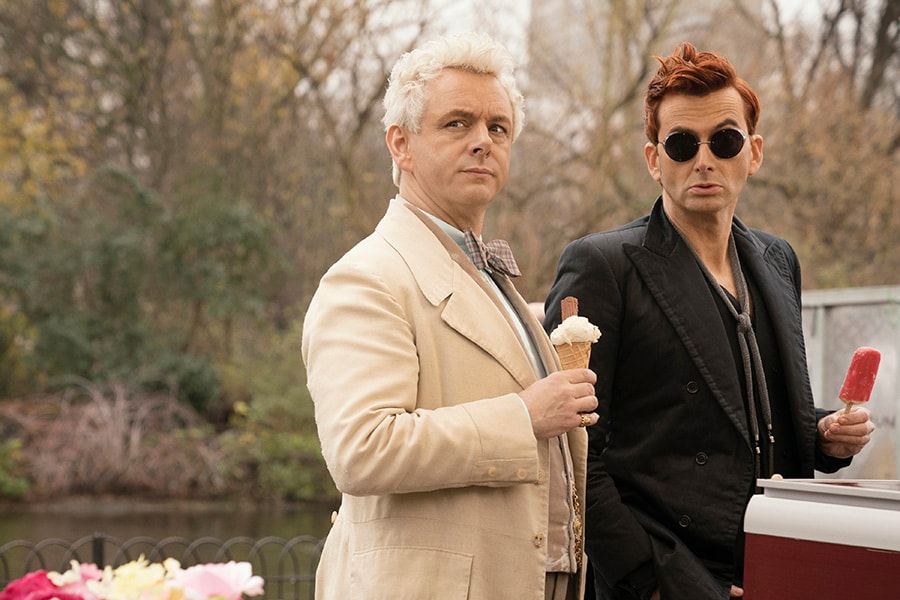 Image: Chris Raphael for Amazon Studios
Image: Chris Raphael for Amazon Studios
Neil Gaiman and Terry Pratchett's Good Omens novel is a brilliant piece of writing that thrives on crisp, witty narration. The dry humour in the subtext of the story about impending doom is quintessentially British, and makes readers laugh as they move with the characters into the apocalypse. The TV series Good Omens, a near perfect adaptation of the source material, brings to life the vision shared by Gaiman and director Douglas Mackinnon.
Good Omens is a story about a demon Crowley (David Tennant) and an angel Aziraphale (Michael Sheen) who, after spending millennia with the human race as the emissaries of hell and heaven respectively, develop fondness to a few things that are uniquely human (for example, sushi or first-edition books). The seven-day countdown to apocalypse begins on the 11th birthday of the Antichrist and it tests the unlikely friendship of this demon and angel.
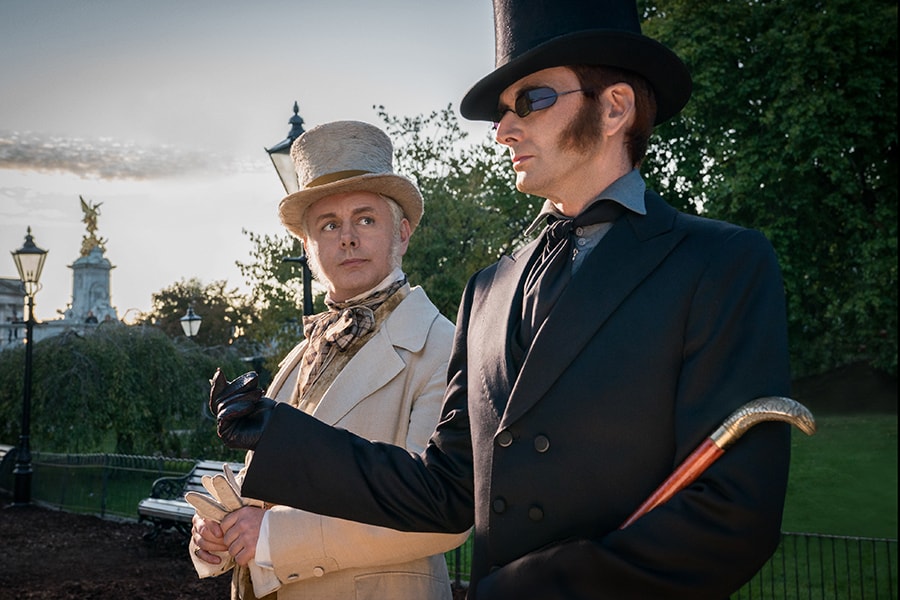
It took almost three decades for the book to see the small screen world. The six-part series is set to premiere on May 31 on Amazon Prime Video. Writer and show creator Neil Gaiman spoke about the process of continuing without Pratchett, and what’s in store for the audience. Edited excerpts:
Q. Tell us about the genesis of the TV adaptation.
Terry and I had a deal for 30 years that we would never do the screen version of Good Omens without each other. It was together or not at all. We had been looking for a screenwriter for a very long time. Then one day after he fell ill, Terry wrote me a letter. He said, “Look, I know you’re ridiculously busy. But you have to write this. Because of my Alzheimer’s, I can’t do it, but I want to see it. You’re the only person who has the passion and love for Good Omens that I have. You have to do it so I can see it.” How could I say no to that? Terry had never asked me for anything in 35 years of friendship. So I said, “Of course, I’ll do it.”
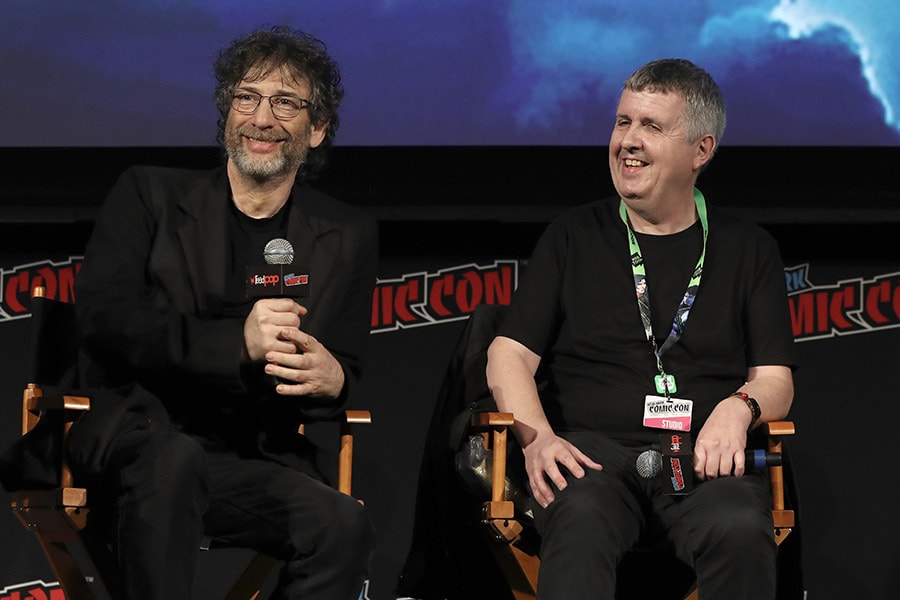
I had to drop other stuff. But it was because of that letter that I made it happen. I wish it had had the happy ending of Terry being able to see it. But very shortly after he wrote that letter in 2015, Terry slipped into a coma and died. That meant it was a lot harder to write the script and to find it funny. It wasn’t easy to find the funny because my funny had just died.
Q. How did the writing process go?
It took me a year to write all six episodes. I remember being very frustrated by the absence of Terry. I wanted to be able to phone him and say, “I’m stuck with this. What do I do?” At another point, I hit a block and wanted to find a way to keep the plot ticking to the final second. When I came up with the idea of how to make that happen, I wanted to hear Terry say, “I wish I had come up with that!”
Q. What makes the BBC and Amazon partnership work?
I love the BBC sensibility. Anything you see on the BBC is a triumph of sensibility over budget. Amazon is a joy to work with, too. I was getting these brilliant notes from them saying, “We love this. It’s fantastic.” The combination of these two producers is a wonderful place to be.
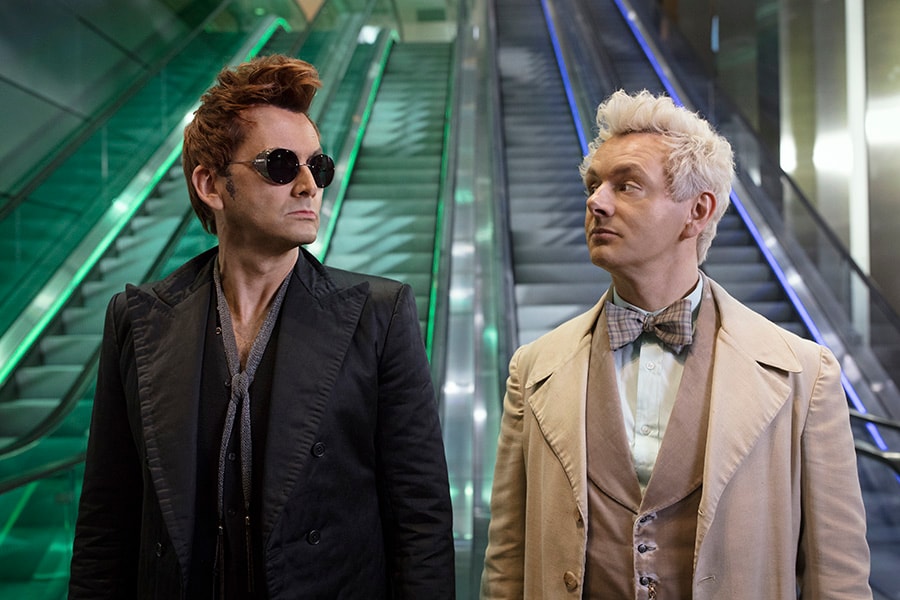
Q. What do you hope that viewers will take away from Good Omens?
I hope people will fall in love with the characters. What I want to do is make something that bears re-watching and gives you something more every time you re-watch it. I know things pay off with repeated viewing. When you re-watch it, you think, “Oh my God, that’s why they set that up.”
Mostly, I want people to walk away in love with Michael and David. The best thing about good TV is that you are spending time with characters who become part of your family. I hope the characters in Good Omens will become your family.
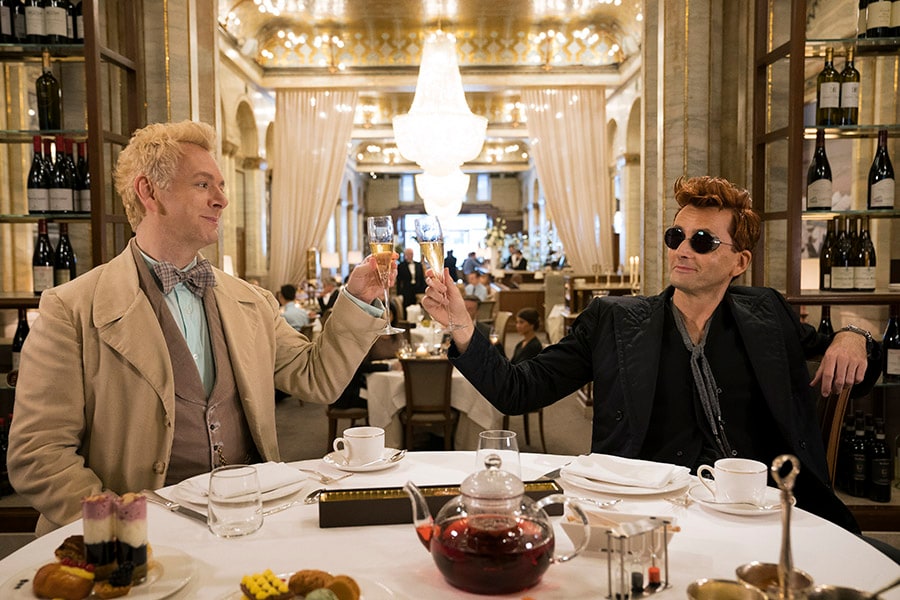
Q. How are you depicting hell in Good Omens?
It’s a basement office—cramped, dripping and unpleasant. The angels won the battle, and so they got lovely offices with beautiful spaces and the demons got the horrible offices down below. In hell, there are too many demons to a cubicle. They are hot-desking. They have buckets to catch the green slime dripping from the ceiling. Terry and I originally imagined hell as a nuclear deterrent on an American air force base. But now we fear computers are about to mess everything up. They are worse than a nuclear deterrent now.





